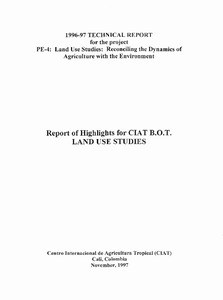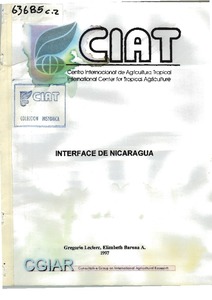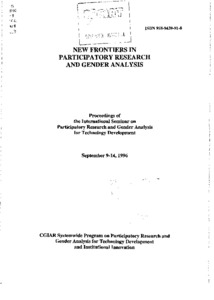Mission
To reduce hunger and poverty, and improve human nutrition in the tropics through research aimed at increasing the eco-efficiency of agriculture.
People
CIAT’s staff includes about 200 scientists. Supported by a wide array of donors, the Center collaborates with hundreds of partners to conduct high-quality research and translate the results into development impact. A Board of Trustees provides oversight of CIAT’s research and financial management.
Values
- Shared organizational ethic
- We respect each other, our partners, and the people who benefit from our work. We act with honesty, integrity, transparency, and environmental responsibility in all of our joint endeavors.
- Learning through partnerships
- We work efficiently and pragmatically together and with partners. Considering our diversity to be a key asset, we adapt readily to change and strive to improve our performance through continuous learning.
- Innovation for impact
- We develop innovative solutions to important challenges in tropical agriculture, resulting in major benefits for the people who support, participate in, and profit from our work.
Members:
Resources
Displaying 591 - 595 of 958Land use studies: Reconciling the Dynamics of Agriculture with the Environment: Annual report 1996-97 Project PE-4
Land use strategies in Pucallpa, Perú
In a selected study are in Pucallpa, Peru, 151 farmer-settlers were interviewed to understand current land use dynamics. Respondents were stratified according to broad differences determined by preliminary informal surveys. Settlers included: farmers practicing slash-and-burn agriculture in upper forested areas, slash-and-burn farmers living along rivers, small-scale cattle ranchers with lands located largely along the road connecting Pucallpa to Lima, and a subset of forest slash-and-burn farmers who had established oil palm as a cash crop.





